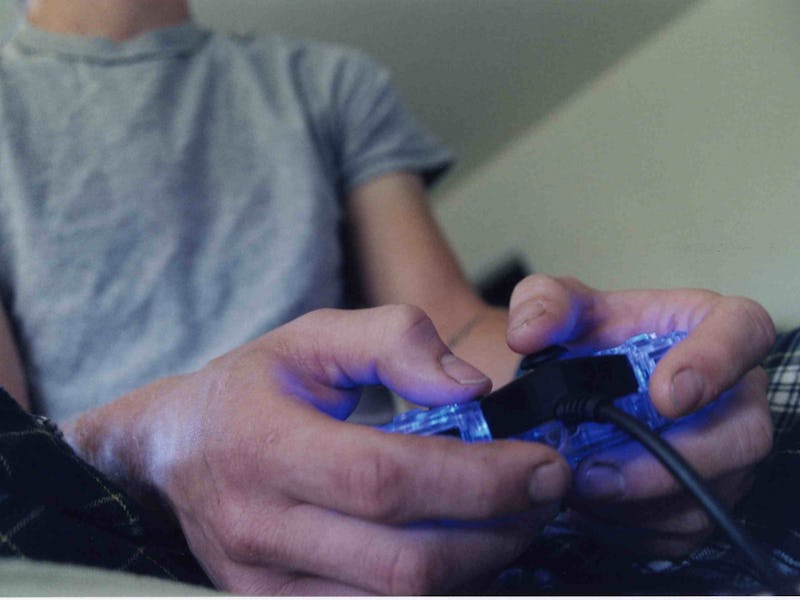Internet Gamers Shouldn't Be Diagnosed With Mental Disorder, Study Shows
"It may be premature."

Just because you play video games all the time doesn’t mean you’re addicted to it. The term addiction is often misused: Sure, you might hear people say, “Oh, I’m addicted to shopping,” or “Cupcakes are like crack to me,” but addiction is defined by a set of clinical criteria, and a new study suggests that video game obsessives don’t seem to meet it.
In a paper published September 29 in the open-access journal PeerJ, a team of researchers conducted assessments on 5,777 American adults at the beginning and end of a six month period to see whether video game addiction — Internet Gaming Disorder — was affecting their mental health. They were surprised to find that there was little evidence that Internet Gaming Disorder adversely affected people’s lives in a way that would justify it being considered a disorder.
“These unexpected results do not support a theoretical framing of Internet Gaming Disorder as a chronic psychiatric condition akin to substance abuse disorder as some have argued,” the study’s authors write.
It’s not enough that people simply seem captivated by a behavior, after all. To be designated as a psychiatric disorder, video gaming would have to be affecting people’s lives in a number of negative ways.
Here are the DSM V criteria for Internet Gaming disorder.
As Inverse reported in July, an increasing number of psychologists and psychiatrists are pushing to designate video gaming addiction as a mental disorder:
Two organizations are advocating for video game addiction to be officially recognized as a diagnosis. The fifth edition of the American Psychiatric Association’s Diagnostic and Statistical Manual of Mental Disorders — the official resource that outlines criteria for diagnosing mental illnesses, referred to more commonly as DSM V — includes Internet gaming addiction as a condition recommended for further study.
And on the global scale, the World Health Organization, which produces the International Statistical Classification of Diseases and Related Health Problems — ICD for short — has proposed a “gaming disorder” entry in a beta draft of its upcoming 11th edition. The DSM is essentially the definitive source on what is and isn’t considered a mental disorder, while ICD is the coding system used across hospitals and insurance companies to track diagnoses and figure out whether your insurance covers you. With that being the case, officially recognizing video game addiction in either or both of these resources would entrench it pretty firmly as a legit diagnosis.
A small but vocal group of psychologists and psychiatrists has begun pushing back against this designation. They say that just because people are really into video games, that doesn’t necessarily mean they’re addicted.
“There is such a thing as high engagement, and if we bastardize it, we actually create a problem that doesn’t really exist,” Anthony Bean, a clinical psychologist who focuses on video games, told Inverse in July.
This latest study provides further evidence to support the claim that video gaming is not an addiction, especially since the researchers found that Internet Gaming Disorder, as defined by the DSM, doesn’t seem to have a strong effect on people’s quality of life.
“As such, it may be premature to invest in management of IGD using the same kinds of approaches taken in response to substance-based addiction disorders,” write the study’s authors.
If you liked this article, check out this video in which Elon Musk’s A.I. bot beats the world’s best Dota 2 players.